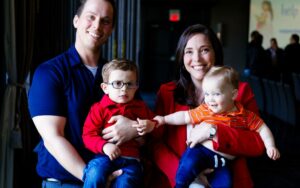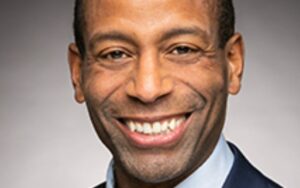
Instead of presenting a plan to attract capital investments, increase productivity and create good jobs, we are left with a patchwork of spending promises that rely on Canada’s professional class to foot the bill. Pictured: Finance Minister Chrystia Freeland. Photo Credit: Chrystia Freeland/X.
Of all the commitments made in the federal budget, changes to the capital gains tax have emerged as the thorn in the side of a government on life support.
The money to pay for billions in spending promises had to come from somewhere and Finance Minister Chrystia Freeland was left with few options: grow the size of the deficit, raise existing taxation measures like income tax rates, raise corporate tax rates, or look to “wealthy” Canadians to foot the bill.
The perceived path of least resistance? In hindsight, it seems obvious that the gauntlet would come down on Canada’s version of the one percent.
Even though Canadians don’t typically head into elections thinking about things like federal spending, there isn’t much appetite in the current climate to pay for new and bigger promises on credit. This sentiment ruled out the option of putting the books further into the red.
In the same vein, the carbon tax has proven to be an albatross around the neck of this government. The finance minister was astute enough to know she didn’t have the political capital to look to the middle class to further finance the budget through additional taxation measures. Thus, no obvious increases here.
It was speculated that a windfall tax would be announced in the budget, but that too was absent from the document. It’s hard to circle the square that Canada can attract foreign investment if the federal government is actively contributing to a less competitive environment for companies who seek to expand their operations, not to mention the fact that additional costs would be one more thing offloaded on the backs of everyday Canadians.
So here we are, a little over a week since the budget officially rolled out. It’s a safe assumption that the Trudeau brain trust thought they were setting a trap for Conservative Leader Pierre Poilievre to defend the rich against tax increases.
Poilievre has yet to take the bait on the issue, instead letting the Liberals flounder on the issue in the face of a public outcry from the Canadian Medical Association. The organization representing Canadian doctors issued a strongly worded objection to the capital gains tax changes, noting they will “have adverse effects on physician recruitment and retention across the country.”
Arguably the worst part of last week’s budget is that the federal government is no longer trying to convince Canadians they are focused on growing the economy. Instead of presenting a plan to attract capital investments, increase productivity and create good jobs, we are left with a patchwork of spending promises that rely on Canada’s professional class to foot the bill.
In the minds of government decision-makers, this is “generational fairness.”
It is largely expected that a federal election won’t be called for another year. Barring an exceptional circumstance, the Liberals will be afforded one more opportunity to spend on anything, and everything, they feel will help them secure a victory in the next election.
Now that we’ve seen the winners and losers of this year’s budget, one question remains. Who will be saddled with the bill next?

Josie Sabatino is a Senior Consultant at Summa Strategies, focused on providing strategic insight and helping clients meet their objectives in an ever changing and complex political and regulatory environment. Prior to joining Summa, Josie spent nearly a decade in political communications and most recently served as the Director of Communications to the Hon. Erin O’Toole, former Leader of the Official Opposition.




















